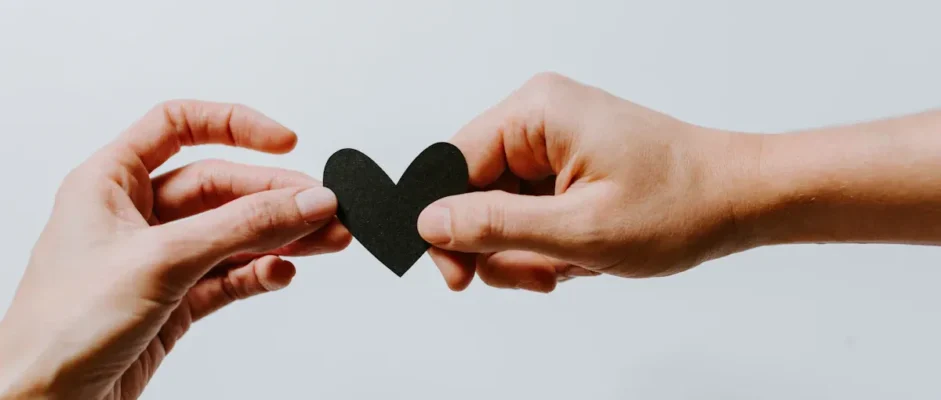Can a Narcissist Love? You might ask if someone with narcissistic traits can really care about you. Healthy love gives you support, truth, and kindness. Narcissistic love often does not have these things.
Healthy Love | Narcissistic Love | |
|---|---|---|
Validation | Yes | No |
Compassion | Yes | No |
Unconditional Love | Yes | Conditional Affection |
Key Takeaways
Narcissistic love does not have much empathy or support. It is usually one-sided. Relationships with narcissists go through a cycle.
First, they make you feel special. Then, they put you down. Last, they may leave you. Narcissists use tricks and control to get what they want. They often do not care about your needs.
Love bombing is when narcissists give lots of attention at first. They do this to control you and make you depend on them. Conditional love from a narcissist means they only show care if you do what they want.
You can spot warning signs like no empathy and always being criticized.
Many people in these relationships feel worried, sad, or blame themselves.
Can A Narcissist Love
Emotional Capacity
You might wonder if a narcissist can love the way you want. Experts say people with narcissistic personality disorder usually cannot feel real love. Their feelings are often limited. They may want to be close, but their actions show something else.
Some narcissists, called “grandiose,” like to be on their own and do not want deep feelings. Others, called “vulnerable” narcissists, feel mixed up. They want to be close but are also scared of it. This makes it hard for them to have strong relationships.
Here is a table that shows how types of narcissism connect to attachment styles:
Type of Narcissism | Attachment Style Linked | Strength of Association |
|---|---|---|
Vulnerable Narcissism | Preoccupied Attachment | Moderate |
Vulnerable Narcissism | Fearful Attachment | Moderate |
Grandiose Narcissism | No significant link | N/A |
People with grandiose narcissism often stay away from deep feelings. Vulnerable narcissists may seem more caring, but they still have trouble trusting others. Both types find it hard to build loving, lasting bonds.
Self-Interest in Love
When you ask, “Can a narcissist love?” you should think about why they love. Narcissists often see love as a way to get what they want. They may use relationships to feel better about themselves or to get attention.
They care more about their own needs than the relationship.
Many pick partners who make them feel special or admired.
Studies show they may look for other partners even when in a relationship, so cheating happens more.
You might feel like your needs do not matter. The relationship can feel unfair. Narcissists often care more about how you make them feel than about your happiness.
Empathy and Connection
Empathy means you understand and share someone’s feelings. In healthy love, empathy helps both people support each other. In narcissistic love, empathy is often missing or does not work right.
Research shows people with narcissistic personality disorder have trouble with emotional empathy. They might know what you feel, but they do not really care or act kindly.
Here is a table that explains how low empathy affects relationships with narcissists:
Key Findings | Description |
|---|---|
Deficits in Emotional Empathy | Narcissists have trouble connecting with partners on an emotional level. |
Dysfunctional Empathy | Their empathy does not work well and depends on their mood or goals. |
Neural Evidence | Brain scans show less activity in areas that process emotions, so there is less real caring. |
Some narcissists can see your feelings but do not show real care.
Others may feel strong emotions, but these feelings stop them from connecting with you.
You may notice your feelings are not met. The relationship may feel cold or confusing. Narcissists often act caring to get what they want, not because they really care.
Healthy love means both people help each other. Narcissistic love often means you give, and they take.
Common Misconceptions
Many people think narcissists love themselves too much. The truth is, they often feel empty inside. Their confidence is just a mask. They may push away people who care, making it hard for you to feel loved or important.
Key differences between healthy and narcissistic love:
Narcissistic love does not have real empathy and is about self-interest.
In healthy love, both people feel important. In narcissistic love, only one person’s needs matter.
If you ask, “Can a narcissist love?” the answer is not simple. They may want love, but their actions often show they care more about themselves and do not make real connections.
Love and Relationships

Relationship Patterns
When you are with a narcissist, the same things happen again and again. At first, the narcissist gives you lots of attention and says nice things. This is called “love bombing.” You feel special and important. But later, things change.
The narcissist starts to say mean things or ignores you. This is the devaluation stage. You might feel sad or mixed up. If you try to leave, the narcissist may start love bombing again to keep you close. If you do not help them anymore, they might end things fast. This cycle can happen over and over.
Idealization: The narcissist gives you praise and makes you feel great.
Devaluation: They start to blame, ignore, or criticize you.
Repetition: If you pull away, they go back to love bombing.
Discard: They might leave when you are not useful.
At first, people feel happy in these relationships. But as time goes on, they feel less happy. Your needs may not matter anymore.
Manipulation and Control
Narcissists use tricks and control to get what they want. You might see that your ideas do not count. You may feel forced to do things their way. They might use guilt, mean words, or keep you away from friends and family.
Narcissists use coercive control to get their way.
They may think they should get special things.
Some use anger or threats to control your money or time.
Covert narcissists act nice in public but trick you at home.
You may feel scared to speak up. The relationship can feel unfair, and your needs are not met.
Studies show narcissists do not help their partners much. This makes the relationship worse over time.
Admiration and Obedience
Narcissists want you to admire them and do what they say. They like it when you give them praise and follow their rules. If you stop, they may get mad or try to control you again.
Description | Key Points |
|---|---|
Narcissists want praise to feel good. | |
Reaction to lack of admiration | They may get angry or try to get your attention. |
Relationship impact | This makes the relationship shaky and one-sided. |
You may feel like you are acting in a play. The narcissist wants to be the main person, and you are just there to help. If you do not praise them enough, they may hurt your feelings.
Signs of Narcissistic Love

Genuine or Manipulative
You may wonder if the love you feel from a narcissist is real or just a way to control you. Narcissists often use “love bombing” at the start of a relationship. They give you gifts, compliments, and attention. This can make you feel special and safe. However, this is not true love. It is a way to gain power over you and make you depend on them.
Love bombing is a form of emotional abuse. It creates a false sense of security and makes you hope for the return of the ideal partner.
After the love bombing phase, you may notice changes. The narcissist may start to control your choices, thoughts, or feelings. They might withhold love or attention if you do not meet their needs. You may feel judged, criticized, or even shamed in public. These are signs that the love is manipulative, not genuine.
Common signs of manipulative love:
Your partner tries to control your actions or emotions.
They withhold affection when you do not please them.
They blame you for problems and refuse to take responsibility.
You feel emotionally dependent and confused.
Red Flags
Spotting red flags early can help you protect yourself. Narcissists often show certain behaviors that experts recognize as warning signs.
Lack of empathy: They dismiss your feelings and do not try to understand you.
Need for admiration: They want constant praise and never feel satisfied.
Manipulation: They use mind games, gaslighting, or twist your words.
Cruel mockery: They make fun of you or others in a mean way.
Intimidation: They use threats or fear to control you.
Blame shifting: They never admit mistakes and always blame others.
Limited remorse: They rarely feel sorry or reflect on their actions.
Red Flag | What It Looks Like |
|---|---|
Lack of Empathy | Ignores your feelings or problems |
Constant Criticism | Judges or belittles you often |
Gaslighting | Makes you doubt your own reality |
Withholding Affection | Uses love as a reward or punishment |
Refusal to Apologize | Never admits fault or says sorry |
Conditional Love
Narcissistic love is often conditional. You may feel loved only when you meet their needs or give them praise. If you stop, the affection disappears. This can leave you feeling exhausted and unsure of your worth.
Narcissists tie their self-worth to feeling special or unique.
They need constant validation from others.
When they feel criticized or ignored, they may react with anger or withdrawal.
You may notice that your partner’s love depends on how well you meet their demands. This can lead to emotional exhaustion and low self-esteem. Many partners feel trapped, always trying to win back affection.
Conditional love from a narcissist can cause confusion, anxiety, and a loss of self-respect. You may start to question your own value.
Key signs of conditional love:
You feel you must earn love by pleasing your partner.
The relationship feels one-sided and draining.
You often doubt yourself and feel emotionally worn out.
Conclusion
You might feel mixed up or sad when you are with a narcissist. Their love can seem unfair and only about them. After a while, you may feel bad about yourself. You could have trouble trusting people. Sometimes, you might even get sick because of stress. You should keep yourself safe by making strong rules.
Focus on self-care: Be kind to yourself and talk to friends who care.
Seek help: Talking to a therapist or joining a support group can help you feel better and stronger.
Contact Information | |
|---|---|
Live Advocate | 800.799.SAFE |
Text Support | Text START to 88788 |
Helpline for Teens | 866.311.9474 |
You should have respect, feel safe, and get real love.
Transform your Inner Chaos into authentic personal growth!
Stay informed on the latest research advancements covering:
Co-Parenting With A Narcissist
Frequently Asked Questions
Is it my fault if a narcissist treats me badly?
It is not your fault if a narcissist is mean. Narcissists often blame others for their actions. Their bad behavior comes from their own problems. It does not mean you did something wrong.
How can I protect myself in a relationship with a narcissist?
Set strong boundaries to keep yourself safe. Tell others what you need. Stay away if you feel unsafe. Ask friends, family, or a therapist for help. Support can make you feel stronger.
What is “love bombing” and why does it happen?
Love bombing means giving lots of gifts or attention fast. Narcissists use it to make you feel special. They want to control you. This stops when you do not do what they want.
Can a narcissist feel empathy?
Most narcissists have trouble with empathy. They might know how you feel but do not show real care. This makes it hard to connect with them.
Are all narcissists the same?
Narcissists act in different ways. Some seem bold and outgoing. Others look shy or unsure. Both types find it hard to care about others. They struggle with healthy relationships.
What are signs that I am in a narcissistic relationship?
You may see lots of criticism and little empathy. There may be tricks or love that depends on what you do. You might feel tired, confused, or not important.
Is it possible to have a healthy relationship with a narcissist?
Healthy relationships need care, respect, and fairness. Narcissists often cannot give these things. You may not get your needs met or feel valued.
